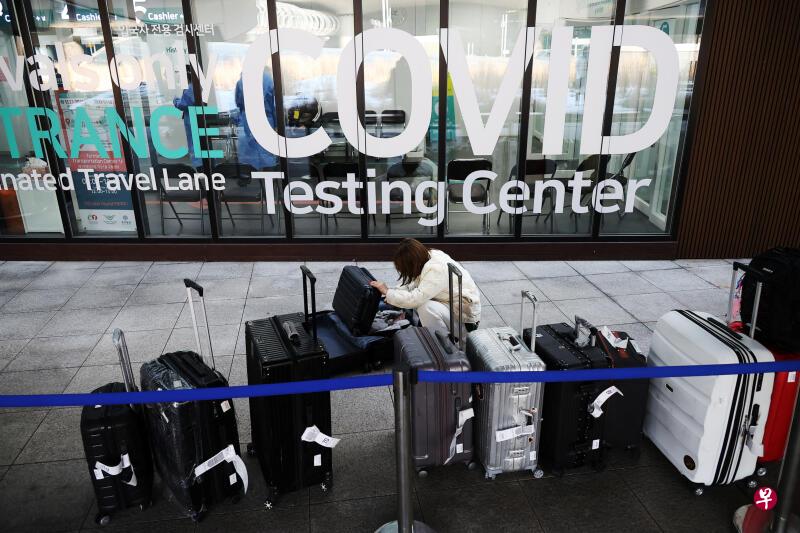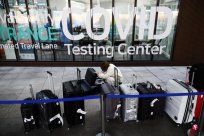
(Brussels Composite Television) Most EU member states support require passengers from China to test the crown disease before leaving the country, and unanimously agree to coordinate the situation of the changing epidemic situation in China, as well as the increase in travel to Europe after the Chinese people are unsealed to Europe.The impact brought.
However, the International Aviation Transport Association (IATA) pointed out that at most of the inbound restriction measures have delayed the peak of the virus for a few days.Many European and American experts have also questioned the efficacy of Chinese people's entry.
IATA Chairman Walsh issued a statement on Wednesday (January 4) that criticizing some countries to perform testing measures such as testing from China is a "conditional reflection response" that cannot work.He said: "The measures that have been confirmed in the past three years have recovered. It is extremely disappointed to see that this conditional reflection response."
Walsh pointed out that such measures have been confirmed in the past three years, and crown diseases have also been widely spread in countries that have restored these measures.Studies after the occurrence of Ormico's strains at the end of 2021 showed that restrictions can at least delay the peak of viruses for a few days.
He said: "New variants appear anywhere in the world, the situation is expected to be the same ... The government's decision must be based on 'scientific facts', not 'scientific politics'."
IATA represents about 300 airlines, and their international flight passenger volume accounts for 83%of the world's.Walsh emphasized: "We have tools for controlling crown diseases, and we don't need to resort to invalidate measures to cut off international connections, damage the economy and damage employment."
Experts: American popular strain xxb.1.5 threats or greater
Many experts have also questioned the effectiveness of restricting Chinese passengers' entry, and referring to the popular Omikon subtype strain currently popular in the United States, XXB.1.5 may constitute a greater threat.
French epidemiologist Zrek pointed out that European immigration prevention measures for Chinese passengers must work, and the scope of implementation must include the entire Schengen area.Windsliers, a evolutionary biologist at the University of Belgium, believes that conducting random inspections on passengers from all over the world may be effective than detecting Chinese passengers.
Chinese experts said that the recent popularity in Beijing is BA.5.2 and BF.7, and these two strains have been replaced by more spreading strains in Western countries.
According to data from the US Centers for Disease Control and Prevention, since mid -December last year, XBB.1.5 has increased from less than 10%to more than 40%.Hunter, a professor of medicine at the University of East Angelia, said that the case of this strain infected with the British is increasing and has become a major concern.
However, American virusist Lasmuson said XBB.1.5 is not a catastrophic "super variant".Studies have shown that the addition of new binary vaccines can produce neutralized antibodies against XBB.1.5.
The EU Health and Security Council met on Tuesday (3rd) to discuss whether to jointly take epidemic prevention measures from Chinese passengers.A spokesman for the European Commission said after the meeting on Tuesday that most member states supported passengers from China to test the crown disease before boarding.
The measures planned by the European Union also include: It is recommended that passengers who take off flights from China wear masks on board, detect wastewater from Chinese offset flights, monitor virus genomes at the airport, strengthen monitoring and vaccination.
EU's health officials met for further discussion on Wednesday.The spokesman emphasized that these measures must be implemented in a coordinated manner to ensure effectiveness.
In Asia, Japan announced on Wednesday that from Sunday (8th), it has strengthened prevention measures for immigration passengers from China, including passengers who need to fly directly from China to provide negative proof of crown detection before boarding.The detection of passengers will also be changed to higher precision nucleic acid detection or quantitative detection of antigen.
China says that some countries lack scientific basis for the Chinese inbound restrictions on the Chinese people, and China will take corresponding measures for countries that restrict such restrictions for political purposes.
In response, the White House press secretary, Pierre, said on Tuesday that countries only take cautious measures to protect their citizens, and China has no reason to retaliate.She emphasized that the United States' decision has a scientific foundation and is also based on public health needs.



